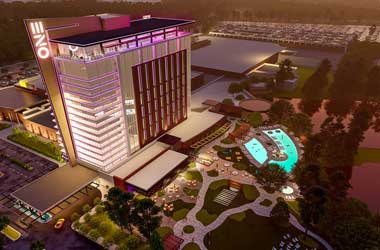
- Richmond Mayor and City Council members are hopeful that a 2% real estate tax rate reduction will get voters to approve a casino for the capital city.
- Voters rejected the One Casino project plans last November.
- The tax cut will not come into play until voters approve the casino via a second referendum.
Out of the five cities in Virginia that had the right to approve a casino facility, the capital city was the only one to see voters come out against the idea. Back in November, a casino referendum involving the One Casino was rejected, costing the city tax revenues as well as new jobs. Officials are now trying to get the idea back on the ballot and hope that a 2% real estate tax cut will do the job.
On Monday night, Richmond Mayor Levar Stoney and City Council members came together to consider casino gaming once again for the capital city. The mayor’s administration announced a proposal for a 2% real estate tax cut for citizens if the casino plans would be approved via a second referendum vote. The tax cut will not be valid unless voters approve the project.
The proposal was unveiled just a few hours before the council voted on whether or not a second referendum should be placed on the ballot connected to the One Casino. The almost $600 million project will bring $30 million in annual taxes to the city along with 1,500 employment positions.
During yesterday’s public hearing, around 20 people were in attendance and were evenly split on the matter. Many expressed how they felt it would be unfair to try again since the vote clearly showed that the public was not in favor of the Richmond casino.
Racial and Geographic Issues
On the flip side, others feel that the vote was not handled correctly. The results of the election in November reportedly broke along racial and geographical lines. Precinct votes show that the majority white precincts voted two to one against the casino. In predominately black neighborhoods, voters said yes to the idea.
While the project was being pitched around Richmond, one key point made time and time again was the fact that the casino would be the only black-owned property in the United States. According to Mayor Stoney, the fact that the proposal was rejected, it made the black residents of the city feel unloved.
Officials decided to pass legislation yesterday that will see the city partner with Urban One and Peninsula Pacific Entertainment to create the One Casino. The developer is basically the same, but an effort will be made to showcase what the casino will bring to the city and its residents along with the newly proposed real estate tax cut.

